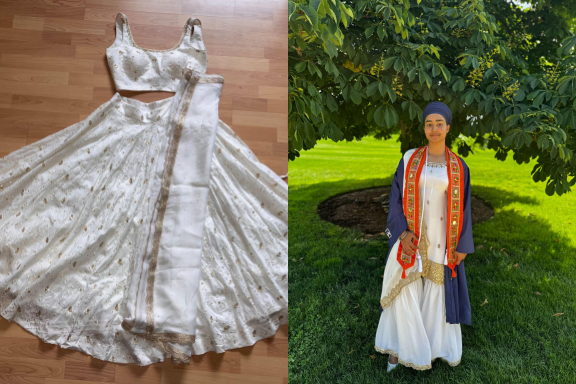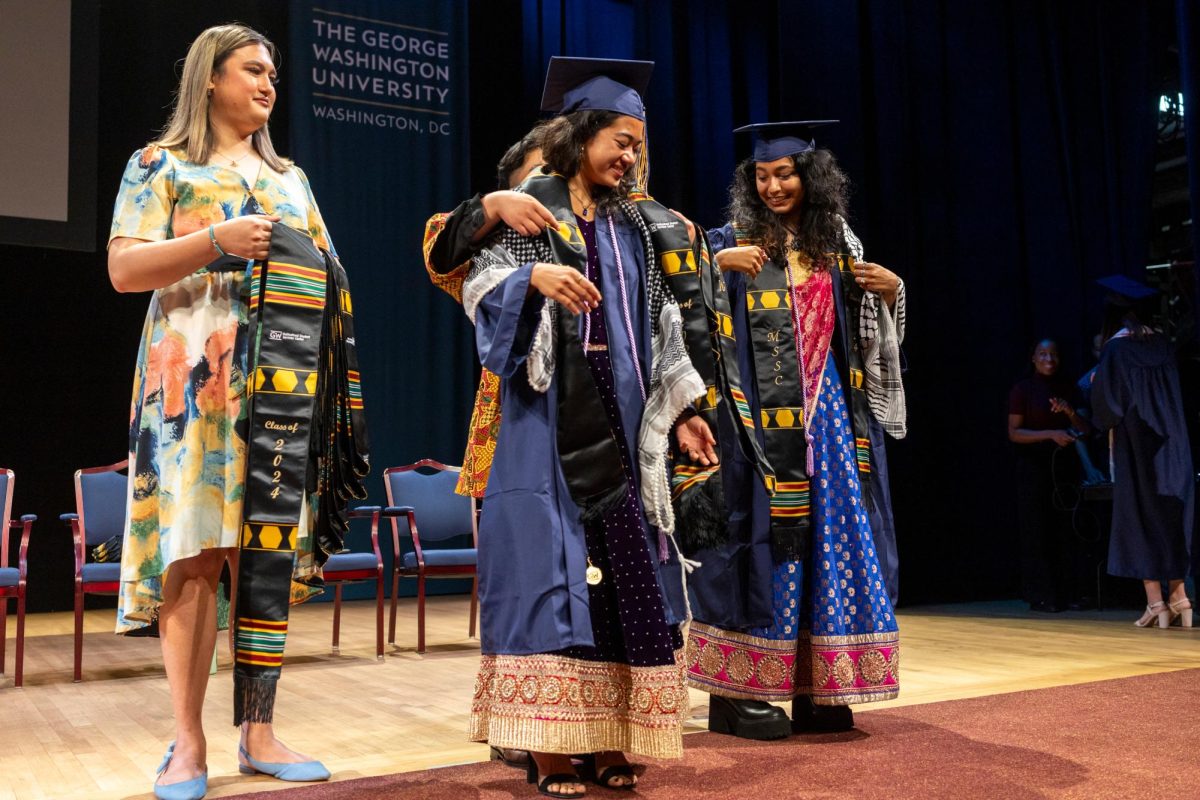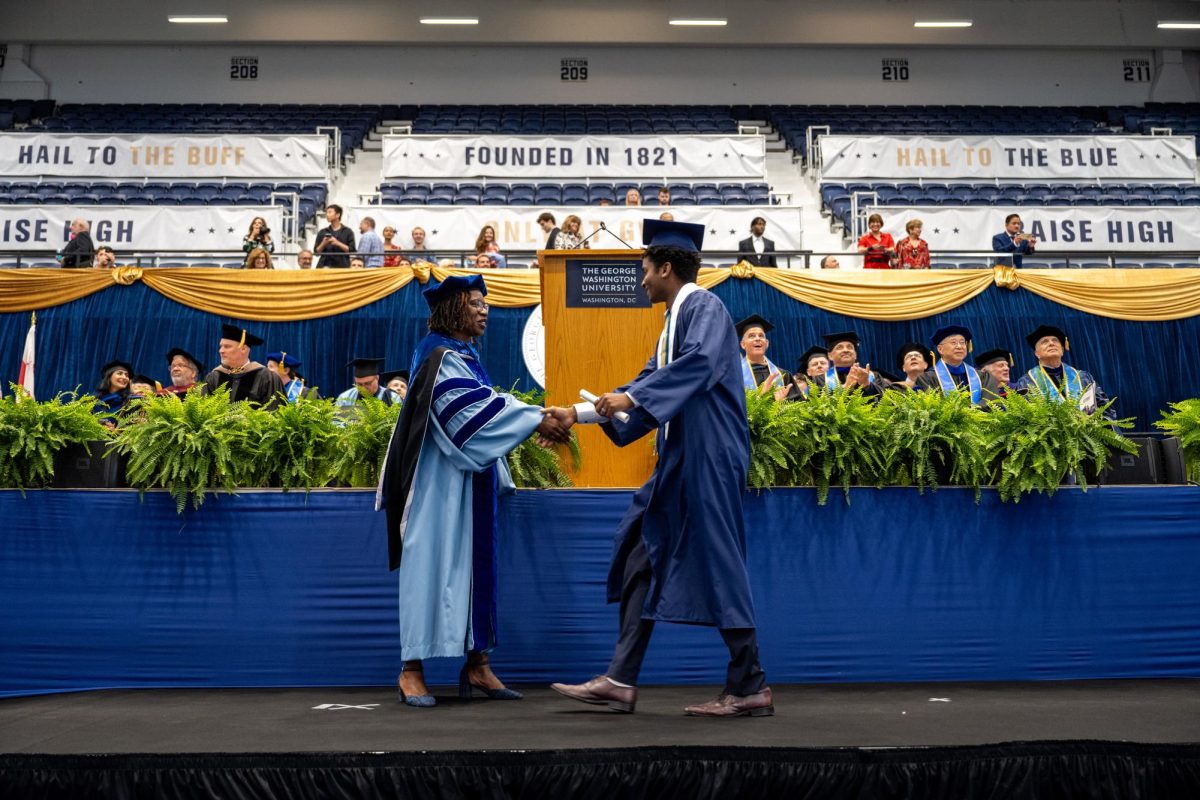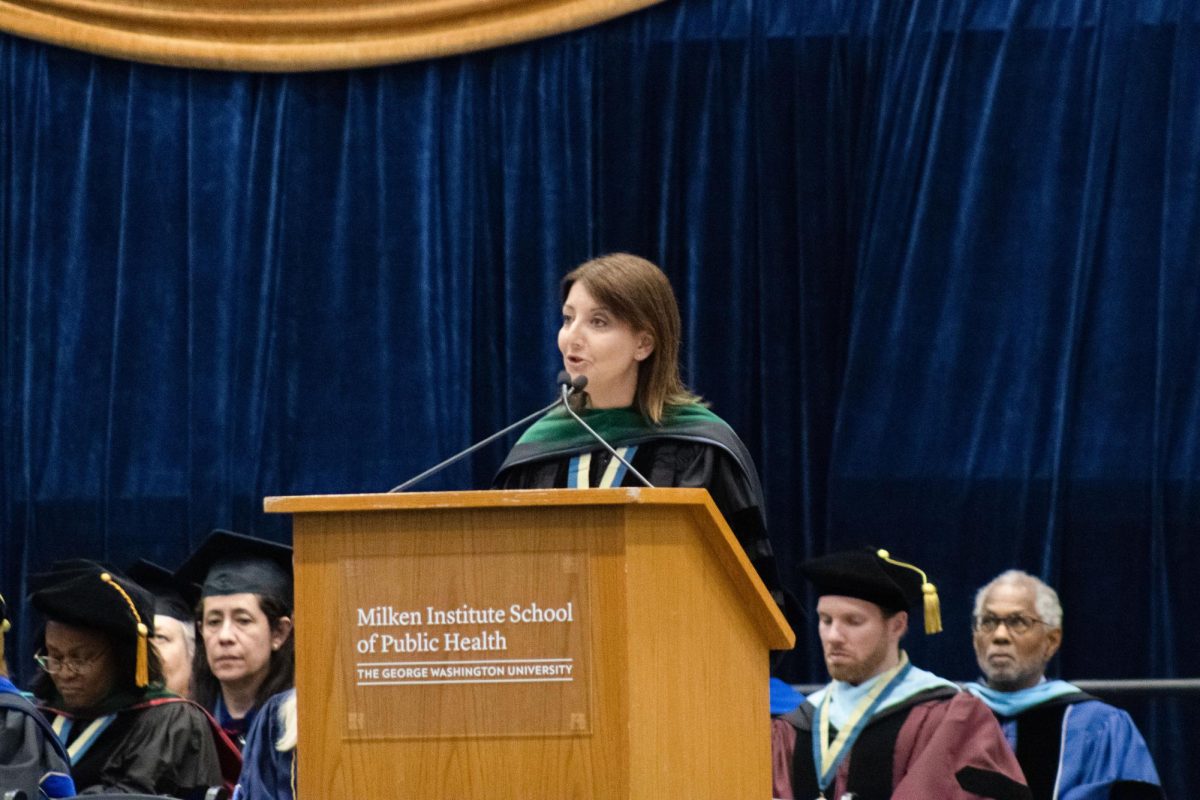Between vibrant floral patterns and homages to cultural traditions, seniors are marking the end of their undergraduate careers in style.
Members of the class of 2024 are putting their own twist on the traditional Commencement attire as they get ready to graduate on the National Mall later this month. Through selected fabrics, patterns and silhouettes, seniors are embroidering tributes to their cultural and LGBTQ+ identities into the outfits they plan to don for Commencement.
Riya Sharma, a graduating senior who majored in data science and political science, said she plans to accept her diploma wearing a lehenga, a traditional Indian garment made up of a blouse, a skirt and a scarf, called a dupatta, that can be draped around the shoulders, arms or hair.
Sharma said lehengas, an integral part of Indian and South Asian women’s wear, tend to be colorful, especially in Hindu communities, and are worn for special occasions like parties or weddings.
Sharma said her lehenga is off-white with gold bordering the neckline and gold flowers embroidered throughout the outfit. She said that although wearing plain white is commonly seen as funeral attire and is uncommon for other formal events in Indian culture, she decided to wear a white lehenga for graduation to blend her heritage with traditional American graduation style.
“Most graduation dresses in the United States, the tradition is to have white and so I thought ‘Why not blend the two of those together?’” Sharma said. “I’ll wear the lehenga, I’ll still have something special on it with the gold embroidery, which in general is used super often as an accent of a primary focus of an outfit. I thought I would make it a little special rather than just having a plain white dress or a plain white lehenga.”
She said growing up in an Indian American household helped shape her identity today. She said her parents always provided unwavering support — whether it be fiscal or familial — for her academic achievements and professional pursuits.
“I wanted to do something not only as a nod to my Indian heritage but also to my parents because they are the reason why I’m able to graduate,” Sharma said.
Dina Grossman, a graduating senior who studied biological anthropology, said she will be sporting a dark blue jumpsuit on the National Mall later this week. She said her style evolved over the last four years, as she has branched out into her queer identity more through her clothing choices.
Grossman said a dress was “more feminine” than what she wanted to wear to graduation. She said she instead chose a look that would help her feel feminine but in a less traditional way — plus, she said she just always wanted to wear a jumpsuit to an upscale event.
“That’s not true that I didn’t want to dress feminine, but I didn’t want to wear the classic dress,” Grossman said. “I wanted to do something a little different. I wanted to buy an item of clothing I haven’t worn before. I think this is my first jumpsuit purchase.”
Harmanjeet Kaur, a graduating senior who majored in information systems, said she plans to wear a traditional Punjabi suit which typically includes a tunic called a kameez, trouser style pants called sharara and a dupatta. She said she also will wear a graduation stole — the cloth draped around one’s neck which often features one’s class year — embroidered with phulkari, a floral design that is popular in Punjab.
She said she wanted to emanate a traditional and elegant look for her formal suit so she chose white to aesthetically match the blue GW graduation gown. The suit was custom made in Ludhiana, Punjab, and her mother’s friend shipped it to her.
Kaur said that she did face some pushback within her friend group for her graduation attire choices, with people asking why she didn’t wear a formal American-style dress. She said she wants to represent her culture through her Commencement fashion to celebrate the “biggest achievement” of her life so far.
“People have definitely questioned me,” Kaur said. “Because, you know, they’re like, ‘Why aren’t you just wearing you know, like a normal dress?’ And I’m like, ‘Look, this is normal for me.’”
Kaur said the inspiration behind her Commencement outfit are her strong ties to Punjab, where she was born. She said her parents immigrated to America from Punjab, and she is the first person in her family to be graduating from college.
“I’m very proud of where I come from,” Kaur said. “I just want to show that and I want to honor my parents because I feel like my parents are very traditional and they gave up everything just to give us these opportunities, and I wouldn’t be where I am without them and their sacrifices.”





